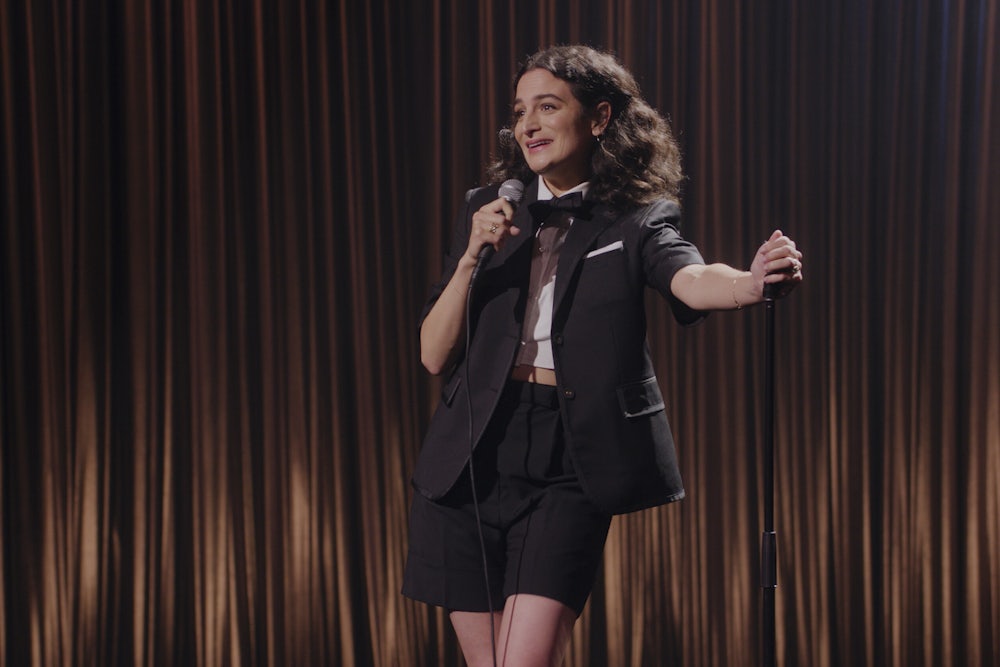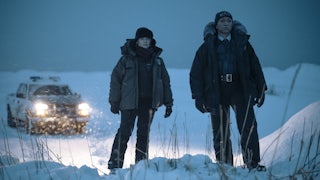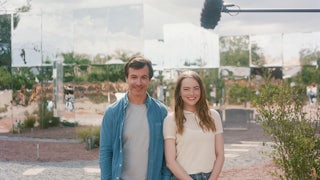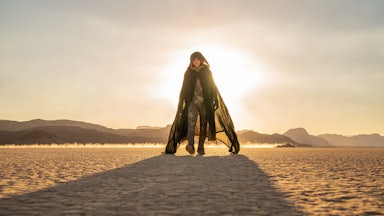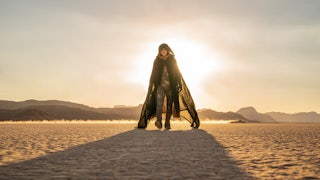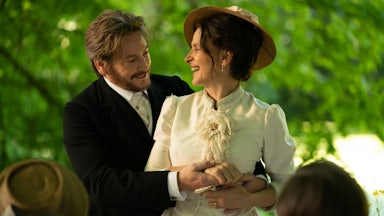I have never watched a stand-up comedy set without crying. Sometimes, it’s organic. The rhythm, the pace, the precision of a good stand-up can make me lose control of my face. My cheeks are sore, and tears stream from my eyes. This, I imagine, is a great compliment to a comedian, to see an audience member convulsively weeping with pleasure and enjoyment. The truth of it is that I will do this whether the jokes are funny or not.
The performance of stand-up comedy is such a terrifyingly vulnerable act to me that it’s impossible not to react. As Jesse David Fox writes in his mammoth disquisition on the subject, Comedy Book: How Comedy Conquered Culture—and the Magic That Makes It Work, comedians sacrifice themselves on the altar of communal comfort, “using comedy to give people a space” to work through complicated emotions or experiences. Even though they might be supremely uncomfortable up there, they do their best not to burden us in the audience with that.
In fact, comfort and ease have been the dominant notes in a lot of recent mainstream comedy specials. Nate Bargatze’s numerous specials have the same mood and energy as hearing your funniest neighbor tell charming stories over a beer on his patio. He’s flipping burgers and cracking everybody up. Taylor Tomlinson’s specials have the intimacy of a group text with your friends that occasionally makes you chuckle out loud for, seemingly, no reason. Mike Birbiglia’s theatrical one-man shows grasp toward craggy life lessons, but they do so in the precise tone and style of a This American Life episode that you’d listen to in the car on your way to the grocery store. Jerrod Carmichael literally doesn’t even stand up in his brilliant, formally inventive special “Rothaniel,” in which the audience talks back and forth with the comedian, offering mutual gestures of support and family-feeling. I’m OK, you’re OK.
All of this is why two recent stand-up specials—from Jacqueline Novak and Jenny Slate—have seemed so special. Rather than project a cool, comforting exterior, Novak and Slate make a point out of their unease: going too fast, speeding into digression, building themselves up, taking themselves apart, gasping for breath, intermittently screaming. Both specials, in different ways, are intimate spectacles of vulnerability. Rather than lean into the familiar, unbothered, authorial calm of the stand-up comedian—“giving people a space”—both Novak and Slate relinquish that ease to try to access something wilder, less comfortable, more surprising. They’re not OK, you’re not OK. Who here is OK?
Jacqueline Novak strides to the microphone at the beginning of her Netflix special, “Get on Your Knees,” to the triumphant tones of Madonna’s “Like a Prayer.” She acknowledges the cheering audience for a few beats before the music stops. “Despite your warm welcome, that journey was hell,” she says. And then it begins. “Get on Your Knees” is a relentless, hilarious 90-minute epic on the topic of the blowjob.
Birbiglia’s latest special is about coming to terms with mortality; Carmichael’s is about coming to terms with his sexuality and coming out to his family and friends; Novak’s special is about coming to terms with a lifetime of desire and anxiety about this one particular sex act. But it is, of course, not only and not even really about that. Part autobiographical monologue, part literary essay, part physical endurance challenge, “Get on Your Knees” is about confidence, embarrassment, gendered self-doubt, reckless bravado, and the hilarious and humiliating saga of figuring out how to believe in yourself. Later on, she calls back to that opening. “This is why I don’t trust the confident entrances,” she says. “I know you people deserve something at the top of the show to put you at ease, you know … I’d rather build from nothing.”
The sheer ambition and brash force of will required to mount something so personal, so touchy at this scale is a spoken and unspoken undercurrent of the whole show. Her opening confession will not be the last time that Novak likens the irrational confidence of the stand-up performer to the irrational confidence of the blowjob performer. Indeed, as Novak sifts through the layers of cultural, social, and personal sediment that surround this particular sex act, it becomes increasingly clear that oral sex is both the show’s genuine topical focus but also a way for Novak to access a much larger range of questions about social life.
“Get on Your Knees,” in this way, is an anthropological act of thick description about the occult social rituals of contemporary heterosexuality. The same indignities and internal compromises and brief ecstatic glimpses of self-actualization that Novak narrates at the scene of the blowjob follow her to the stage. “The blowjob, it is inherently a flawed prospect,” she says, self-consciously describing both acts at the same time. “It’s a flailing human kind of spectacle. It’s almost a bad idea. It almost doesn’t work, but then the ways you make it work nonetheless are that which make it work and that’s what’s moving about it.”
And there is a lot of moving. “Get on Your Knees” was a wildly successful and acclaimed Off-Broadway show as well as a popular touring act for years before Netflix released this special. (Novak debuted this material in an early form at Edinburgh in 2018.) The stage show was directed by fellow comic John Early, and, for all the praise it received and all the sensation it caused, it would be understandable if this special came to life merely as a record, a preservation of a beloved performance. But the special, directed by Natasha Lyonne, gives viewers at least one thing that theater audiences could not have had in person.
Novak moves constantly. She speaks quickly in long, breathless, carefully composed but dangerously uncontrolled sentences punctuated by occasional grace notes and knowing glances to the audience. And as she speaks, she walks. Back and forth across the stage, Novak moves in strides that are confident, kingly even, but also unpredictable. Occasionally they stutter into a pirouette or, briefly, a skip. She occasionally gets on her titular knees, rolls around on the ground, but she does not stay still. From a seat in the audience, one might perceive this motion to fill the stage, to bring her gaze to all corners of the theater. Onscreen, though, Lyonne stays close to Novak. Rather than frame her in a series of steady long shots, Lyonne prefers to track Novak on the run. So the camera moves dynamically, sometimes even briefly loses track of her. At the risk of a bit of seasickness, the cinematic form of “Get on Your Knees” mirrors its content. And Novak’s feat of intellect and stamina is matched by that of Lyonne’s camera operator. “Get on Your Knees” is almost a bad idea, and almost—probably already—a work of genius.
Jenny Slate’s first stand-up special, “Stage Fright,” is also a high-wire act of a sort. Slate—who’s primarily known for her roles in films like Obvious Child and series like Parks and Recreation, as well as for her busy schedule as a voice actor—had been an active stand-up since her college days. Her “Big Terrific” variety shows in the late 2000s were a favorite in the New York alt-comedy scene, but, for most of her career, she refused to allow any of her performances to be filmed. That changed in 2019 when the director Gillian Robespierre—who’d directed her in Obvious Child—filmed and produced Slate’s first special for Netflix.
What makes “Stage Fright” such a unique film is its commitment to an autobiographical, documentary frame. Slate and Robespierre filmed interviews with Slate’s parents, her sisters, and both of her surviving grandmothers, as well as meandering shots of the hallways and rooms of her childhood home. Those scenes—which are long enough to not merely be interstitial scenes in the special—are intercut with Slate’s stand-up act in which she talks, at length and in hilarious detail, about her parents, her sisters, both her surviving grandmothers, and the hallways and rooms of her childhood home. The interviews don’t feel extraneous or cute; they feel like annotations. But it’s a bit of a risky gambit. Comedians narrate their lives freely, turning family, friends, and strangers into characters who serve a purpose within the ecosystem of the act. Having the subjects of Slate’s stand-up speak for themselves could have endangered that ecosystem. But it works. We learn that Slate’s impressions of her grandmothers are pitch-perfect in real time. We see the embarrassment and pride of her parents when she tells them the story of her young life. For a debut special, it’s an unusually confident piece of work.
Slate’s newest special—directed again by Robespierre, but released via Amazon Prime—is called “Seasoned Professional,” and, rather than a high-concept conspicuous display of confidence in her material, it’s considerably less moored than the previous one. The bits in the new special are looser, less bound to Slate’s deep autobiography, but also much more reliant on the performer’s onstage labor to sell. While Novak whisks the audience along with the singular insistence of her tone and movement onstage, Slate’s onstage voice is more frenetic. Early in the special, Slate introduces herself by saying, “I am here tonight because a hypnotist told me that I am a seasoned professional, and I believe it now, deep in my psyche.” And one of Slate’s personas in front of the microphone is certainly that calm, authorial, nonplussed veteran nightclub comic. But that persona is constantly interrupted and undercut. Slate laughs loudly at her own jokes, but she also laughs in discomfort, in embarrassment, even in feigned panic.
Slate’s standout skill has always been her voice work. In this, she shares something with the great Maria Bamford. But, while Bamford’s act vacillates tightly and brilliantly between the comic’s baseline persona (mousy, anxious, darkly perceptive about her inner life) and the antagonistic characters she does (full-voiced, brash, dismissive of her introspection), Slate’s act is more all over the place, by design. In “Stage Fright,” most of her voices were indexed to the family members we saw and about which she joked. Here, the voices jump out of nowhere. They emphasize a point, they modulate a joke by surprise. Sometimes, she’ll cycle between three or four different voices in the course of a single sentence. The instability, it seems, is the point.
More than that, she screams. If Novak produces a complicated comfort for her audience by constantly rushing around the stage, Slate goes after a similar effect sonically. It’s not just the tone and character of her voice that wildly alters; it’s the volume. Guttural screams, full-throated shrieks, horror movie howls. The premise of the special is that this is a show about making it out on the other end of a pandemic and a pregnancy, two universe-altering events occurring simultaneously. (One of Slate’s bits is about the bizarre luck of getting pregnant on the first day of lockdown.) But it’s also a show that frequently cracks into desperate anxiety, roiling insecurity, even rage. By and large, the material in “Seasoned Professional” is standard observational comedy, and some bits land better than others. But the delivery is sometimes excitingly, sometimes frustratingly unstable. We see and hear—because Slate allows us to see and hear—the process of figuring out the right way to say a thing, the right way to inhabit a moment, the right way to create a space for yourself and others. It’s an act about an act, a flailing human kind of spectacle.
